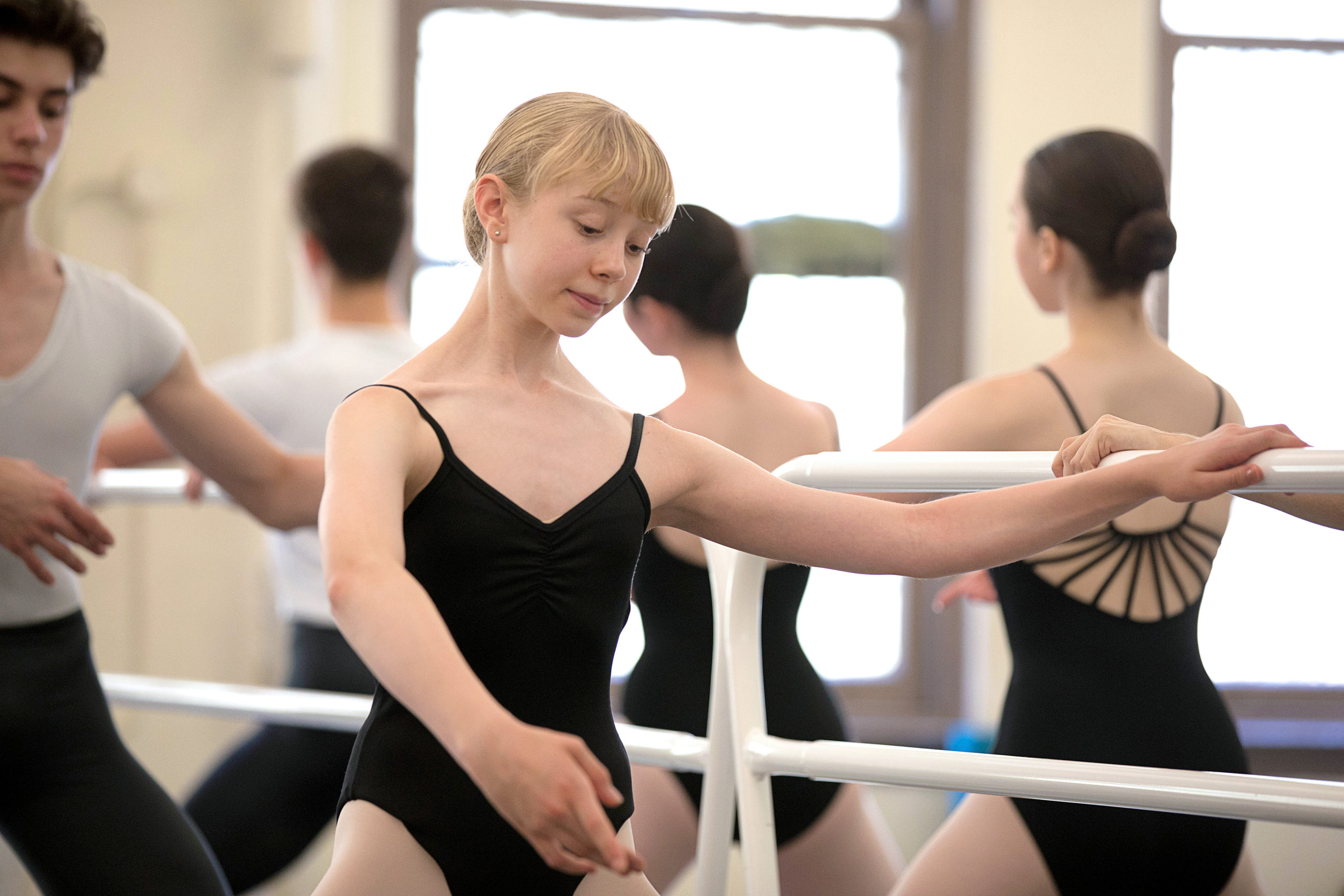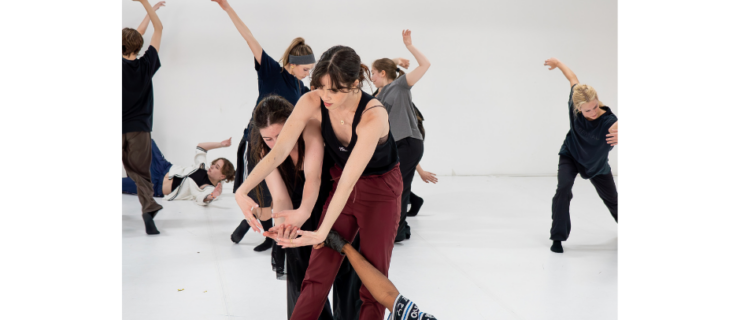How to Feel Confident While Pursuing Your Next Summer Intensive
It’s audition season, and dance schools are touring the country seeking talent for summer programs. For many students, it’s a first-ever audition opportunity, and the stakes can feel extremely high. How could they not? Dancing in unfamiliar rooms, while being assessed by imposing teachers and directors, surrounded by the top talent in the region is a lot! Performing well in auditions is as much a mental challenge as it is a physical one, so cultivating a healthy mindset going in can make all the difference.
Draw From the Past
When it comes to successful auditions, most people think confidence is key, but New York City–based mental performance coach and mental health counselor Liv Massey disagrees. “Confidence feels good, but it’s not required in order to perform well,” she says. “The physical ability is still there, so if you find yourself feeling insecure at an audition, remember that doesn’t mean you will dance poorly.” Regardless, no one likes feeling self-conscious, and it’s hard to feel secure when doing something you’ve never tried before. To cultivate confidence in an audition, Massey recommends dancers think of past positive experiences. “Every dancer has them,” says Massey, who has worked with New York City Ballet. “Maybe it was a rehearsal that went really well, and your teacher gave you positive feedback. Remembering what that felt like primes your emotion centers to feel that way again.”
Pro tip: Keep a journal of your best moments. “Performers have a negative bias, meaning we are attuned to things that aren’t perfect,” she says. “We need something to help us remember the good things.”
Think Positive
“In dance, our body follows what our mind is thinking,” says Massey. “If you are thinking about tripping, messing up or forgetting the choreography, your body is more likely to do that. Instead, think about how you would like your audition to go.” For example, if your anxiety is saying “Oh, gosh, what if I forget it?,” Massey recommends countering with mantras like “I don’t forget choreography,” “I have done this before” and “I love what I do.” The only caveat is that mantras like these have to be rehearsed. “Trying out a mantra for the first time at a big audition is not going to work the way you want it to,” she says. “These require repetition, just like rehearsing. So say those mantras in your daily practice, and you will automatically know what to turn to when the pressure is on.”
Control the Controllable
Kate Lydon, artistic director of summer intensives at American Ballet Theatre’s Jacqueline Kennedy Onassis School, says the best way to feel secure at your next audition is to prepare well and plan ahead. “When you get in the room, you can’t control the exercises, where you stand at the barre or who else is going to show up,” she says. “But there are a lot of other things you can control.” For example, Lydon recommends doing your hair well that morning, choosing an outfit you feel good in, packing warm-ups in case you need them while you wait and making sure you’re comfortable with your shoes. “Registering online or early and having your photos printed and ready to go can help relieve stress the day of,” she says. “Taking care of logistical steps ahead of time will allow you to feel calm, which in turn will help you dance your best.” Arriving early may also quell your nerves, and give you time to stretch.
Practice Low-Risk Auditioning
It’s difficult to know what to plan for if you’ve never attended an audition. In the past, the children’s division at the JKO School has helped students by holding mock auditions, in which dancers wore numbers, learned new combinations quickly and performed them in groups. “You might consider asking your teachers to do something similar,” Lydon says.
Focus on the Process, Not the Outcome
Regardless of how prepared or confident you are, success is never guaranteed. “What I want people to know is that if you are focused on the outcome, you are less likely to get what you want,” Massey says. Instead, focus on the steps that can lead to your desired result, “like waking up 30 minutes earlier to stretch, or working on a particular weakness of yours while in class,” she says. “It’s the little things that will make you the best performer you can be.”
Avoid Comparison
It’s hard to walk into an audition and not size up the other dancers, but Lydon says it’s a mistake to do so. “Comparison rarely helps dancers—you are a unique person developing a particular set of gifts and talents, and that is what we are interested in seeing,” says Lydon, adding that former ABT artistic director Kevin McKenzie classifies gifts as what dancers are naturally good at and talent being made up of grit, determination and self-discipline. “We are looking for all of that in an audition, so try not to judge how you compare to others, because those things will not—and should not—be the same for everyone.”
Strive for Resilience
If at the end of the day the audition doesn’t go your way, both Massey and Lydon recommend focusing on being resilient, meaning that you learn from the experience and try again, next time focusing on factors you can control. “The athletes who do well in their careers are the ones who see losing an audition as an opportunity to grow,” Massey says, adding, “Every rejection is a huge learning opportunity.” Lydon even encourages dancers to look at an audition though a different lens. “You get to take a class with a teacher you’ve never learned from before and discover something new,” she says. “You get to be around amazing dancers. What a fantastic experience to have.” Though it may not be realistic to look for lessons like these immediately after an audition, once you’ve given yourself a proper mourning period, Massey recommends asking your regular teachers what they think you could do to improve for next time.
The truth is, every dancer has felt anxious about an audition before—even the professionals. “If you ask the top dancers what experiences they have learned the most from in their life, almost everyone will give you a negative experience rather than a positive one,” Massey says. “Even if they don’t feel good in the moment, those missed opportunities are really good for us.”




